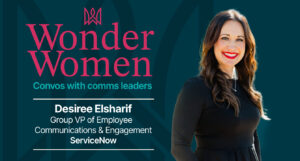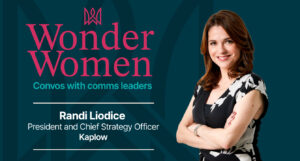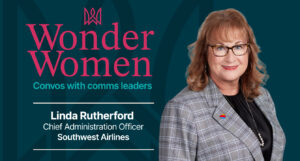Where should I work? The pros and cons of agency vs in-house
There’s no right answer.

Scott Merritt is founder and president, Strategic Global Media.
“Should I work for an agency, or should I work in-house?”
As college commencement ceremony season ends, the PR industry is poised to welcome thousands of newly minted grads seeking entry-level jobs, and almost all of them are plagued with this question.
The right answer: there is no right answer. Understanding the pros and cons of each is the best way to decide what’s right. It comes down to a combination of personality type, career goals, and preferences. This primer can help anyone entering the industry to make an informed decision.
In-house: Feed your passion, but prepare to justify your existence.
The pros:
For anyone who’s passionate about a single industry, such as fashion or automotive, an in-house PR role may be the right choice. Working in-house exposes you to an entire operation, from top to bottom. If your goal is to become an industry leader, it’s a great starting point.
In-house positions allow you to become ingrained in the industry, which is helpful for building relationships, particularly with industry-specific media. According to Theola DeBose, a journalist turned career coach, “journalists can have a more cozy and familiar relationship with the in-house person because they need them for basic info and talk to them often.”
Working in-house is also the best way to ensure you’re working for a company that aligns with your beliefs. “Working in-house means I can vet and commit to a company with values and a mission I can get behind,” said Karissa Kostka, marketing and communications manager at Ever-Green Energy.
The cons:
In many cases, you may be the only PR pro in the company. Being on an island means no nearby collaborators or brainstorm partners, nobody who truly understands the challenges you may be facing, and running into people who routinely question your work.
You may have to justify to the higher-ups why you’re there in the first place, you’ll need buy-in on everything from often-skeptical decision makers who may not understand the value of PR, and then you have to execute the plan and deliver results.
You only get to work in one industry. As UK-based content strategist Ciara Heslam noted, “In-house can be quite ‘samey’ day to day.” In other words, it can get boring.
Agency: Plenty of variety and collaboration, but choose carefully.
The pros:
One of the best things about working in an agency is being surrounded by a team of potential collaborators who get what you do. The ability to quickly gather experts to brainstorm, solve problems and share advice can be incredibly powerful.
Additionally, you have the benefit of being engaged by clients who already understand why they need you. There’s no need to justify what you do; you can focus squarely on developing great ideas and delivering results.
Boredom is never on the agenda at an agency. While some agencies do have a specific industry focus, most agencies serve a wide array of clients. That diverse range of experience helps you become a more well-rounded practitioner and can give way to a world of opportunities as your career progresses.
Agencies are incredible training grounds, but size matters. “I found a boutique agency that gave me a lot more learning and growth opportunities than a bigger agency would have out of the gate,” said veteran PR pro Lindsey Bradshaw. “Big agencies provide opportunities to work with big brand names, which is a great resume booster, but small agencies put you on the frontline with clients a lot sooner, so more is at stake.”
The cons:
A broad client roster means you’ll be shifting gears constantly, which can be great, but beware of burnout. Many agencies apply a win-all-business-at-all-costs approach to keep that roster fresh and full. Often, that approach is paired with overloading teams with too many clients. “If you have 8-10 clients there is no way you can properly service them all,” said Aaron Gouveia, Director of Public Relations at Mass Audubon. “The burnout factor is real if the executive team never says no to new business yet also never expands the team.”
Falling on the sword is a way of life. When things go sideways, the external agency often takes the blame. It may not be justified, and it’s often unfair, but it happens all the time.
Agencies are under constant pressure to deliver or be cut loose. Virtually all client engagements have a 30-day termination clause that can be activated with a simple email at any time, sometimes for a good reason and sometimes for no reason at all.
What’s the verdict? PR veterans weigh in.
There appears to be a consensus among PR veterans that cutting your PR teeth at an agency is the best approach.
As Kim Friedman, whose 25-year career includes both agency and in-house roles, puts it, “Agency first. Learn the basics; learn how to “sell” what PR can do for a company or brand; learn how to connect the dots in a strategic plan; learn new trends in measurement; learn about different industries; learn from experts in the industry. Then explore different paths.”
Echoing this sentiment, India-based content consultant Amlan Suryabanshi added, “The knowledge gain in an agency is unmatched. If I were to start again, I’d work for an agency first, learn the ropes, and then move on to an in-house role and niche down.”
I’ll also add myself to this list, but even as an agency veteran it would be disingenuous for me to dissuade anyone from seeking an in-house position. I accepted my first agency job five years into my PR career.
Either path can mark the first step in a successful career. Just get started and you’ll figure out what works best for you.
In the words of the legendary Led Zeppelin:
“Yes, there are two paths you can go by, but in the long run
There’s still time to change the road you’re on.”







Lots of salient points here, but as an in-house Director of Communications, I have to point out an absolutely huge (to my mind) omission in the pros column for in-house work. Many of these companies that are not PR firms will give you complete autonomy over your work – you’re the expert, and maybe even the only expert, in PR and communications at your workplace. You get to do it your way, and in the time that you dictate. No clients breathing down your neck, being demanding, and (as the cons column of agency work notes) blaming you when things go wrong. Also, none of the tedium of tracking billable hours, and your time is what you make it. I think this is also a huge con in the agency section – the constant tracking and justification of your time. The author, as an agency professional, might want to add these elements to this slightly unbalanced commentary — even if the conclusion is the same.
There are other options besides in-house and agency—I started my own PR consulting firm a year ago so I could choose my clients and projects. The work has been varied, challenging and it’s allowed me to work on small, meaningful projects that couldn’t afford external help otherwise. The flexibility and variety have been a dream!
It’s not for the faint of heart, though, as if you’re the type of person who needs stability and/or benefits, this may not be for you. For those who have thought about it and are willing to take a leap of faith, it could be the third option you’ve been looking for.